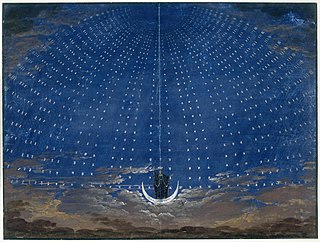
The Magic Flute, K. 620, is an opera in two acts by Wolfgang Amadeus Mozart to a German libretto by Emanuel Schikaneder. The work is in the form of a Singspiel, a popular form during the time it was written that included both singing and spoken dialogue. The work premiered on 30 September 1791 at Schikaneder's theatre, the Freihaus-Theater auf der Wieden in Vienna, just two months before the composer's premature death. Still a staple of the opera repertory, its popularity was reflected by two immediate sequels, Peter Winter's Das Labyrinth oder Der Kampf mit den Elementen. Der Zauberflöte zweyter Theil (1798) and a fragmentary libretto by Johann Wolfgang von Goethe titled The Magic Flute Part Two.

Alceste, Wq. 37, is an opera by Christoph Willibald Gluck from 1767. The libretto was written by Ranieri de' Calzabigi and based on the play Alcestis by Euripides. The premiere took place on 26 December 1767 at the Burgtheater in Vienna.

Semele is a 'musical drama', originally presented "after the manner of an oratorio", in three parts by George Frideric Handel. Based on an existing opera libretto by William Congreve, the work is an opera in all but name but was first presented in concert form at Covent Garden theatre on 10 February 1744. The story comes from Ovid's Metamorphoses and concerns Semele, mother of Bacchus. Handel also referred to the work as 'The Story of Semele'. The work contains the famous aria "Where'er you walk".

Faust is an opera in five acts by Charles Gounod to a French libretto by Jules Barbier and Michel Carré from Carré's play Faust et Marguerite, in turn loosely based on Johann Wolfgang von Goethe's Faust, Part One. It debuted at the Théâtre Lyrique on the Boulevard du Temple in Paris on 19 March 1859, with influential sets designed by Charles-Antoine Cambon and Joseph Thierry, Jean Émile Daran, Édouard Desplechin, and Philippe Chaperon.

Rusalka, Op. 114, is a 1901 opera by Antonín Dvořák. The Czech libretto was written by the poet Jaroslav Kvapil (1868–1950) based on the fairy tales of Karel Jaromír Erben and Božena Němcová. A rusalka is a water sprite from Slavic mythology, usually inhabiting a lake or river. Rusalka was the ninth opera Dvořák composed. It is Dvořák's most successful opera and belongs to the repertoire of all world opera scenes.

Eugene Onegin, Op. 24, is an opera in 3 acts, composed by Pyotr Ilyich Tchaikovsky. The libretto, organised by the composer himself, very closely follows certain passages in Alexander Pushkin's 1825–1832 novel in verse, retaining much of his poetry. Tchaikovsky's friend Konstantin Shilovsky contributed M. Triquet's verses in Act 2, Scene 1, while Tchaikovsky himself arranged the text for Lensky's arioso in Act 1, Scene 1, and almost all of Prince Gremin's aria in Act 3, Scene 1.

The Queen of Spades or Pique Dame, Op. 68 is an opera in three acts by Pyotr Ilyich Tchaikovsky to a Russian libretto by the composer's brother Modest Tchaikovsky, based on the 1834 novella of the same name by Alexander Pushkin, but with a dramatically altered plot. The premiere took place in 1890 at the Mariinsky Theatre in Saint Petersburg, Russia.

Oskar Nedbal was a Czech violist, composer, and conductor of classical music.
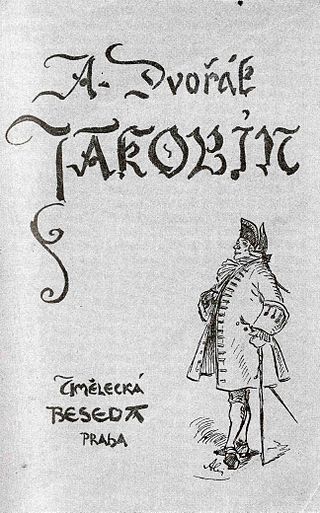
Jakobín, or The Jacobin in English, is an operatic pastoral comedy in three acts by Antonín Dvořák, his Opus 84. Its Czech libretto by Marie Červinková-Riegrová employs characters from Alois Jirásek's story At the Ducal Court but in a plot of her devising. The opera's first performance took place on 9 February 1889 at the National Theatre in Prague with Adolf Čech conducting; it was however revised by both librettist and composer and premiered again, under Čech, on 19 June 1898, with notable adjustments to the last act, in the version that has since been standard.

Oberon, or The Elf-King's Oath is a 3-act romantic opera with spoken dialogue composed in 1825–26 by Carl Maria von Weber. The only English opera ever set by Weber, the libretto by James Robinson Planché was based on the German poem Oberon by Christoph Martin Wieland, which itself was based on the epic romance Huon de Bordeaux, a French medieval tale. It was premiered in London on 12 April 1826.

Šárka, opus 51, is an opera in three acts by Zdeněk Fibich to a Czech libretto by Anežka Schulzová, his student and lover. Fibich composed the full score over the period of 8 September 1896 to 10 March 1897. At the time, Czech audiences regarded Fibich with suspicion as being overly influenced by the music of Richard Wagner, and Fibich had selected the legend of Šárka for this operatic subject to try to counter such sentiments. Even so, the opera still contains use of Wagner's idea of leitmotif.

Hans Heiling is a German Romantic opera in 3 acts with prologue by Heinrich Marschner with a libretto by Eduard Devrient, who also sang the title role at the première at the Königliche Hofoper, Berlin, on 24 May 1833. From there, the work went on to become Marschner's most successful opera. The opera brought the composer a considerable reputation, although this did not materially affect his position in Hanover, where he was music director of the Court Theatre. Like Marschner's other great success, Der Vampyr, the plot of Hans Heiling makes great use of supernatural elements. As with several of his operas, Hans Heiling is based on a folk legend.

Princess Wanda Princess and the Queen, daughter of King Krakus, the founder of Krakow, Poland. Wanda was very famous for her outstanding beauty and wisdom. She was the daughter of the Lechitic King Krakus (Krak) legendary founder of Kraków. Upon her father's death, she became queen of the Lechites/Poles, but in the later reeditions committed suicide to avoid an unwanted marriage to a Teuton. In both versions of the source legend, she died childless. Wanda is also often known as the Virgin Queen.
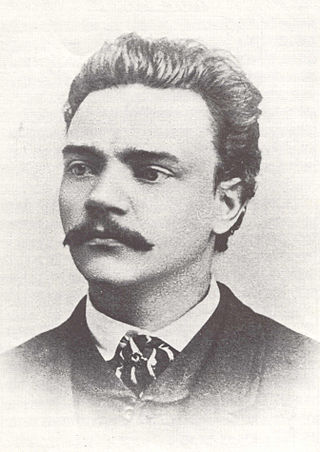
King and Charcoal Burner, Op. 14, is a Czech comic opera in three acts, divided into 23 scenes, with music by Antonín Dvořák.
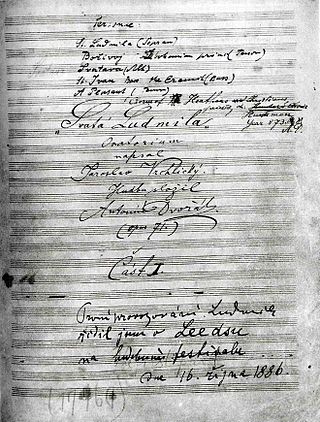
Antonín Dvořák composed his oratorio Saint Ludmila for soloists, choir and orchestra, between September 1885 and May 1886. The oratorio was written to a text by the leading Czech poet and writer Jaroslav Vrchlický. Saint Ludmila is Dvořák's third oratorio, and is considered one of his foremost works.

Alfred is a heroic opera in three acts by the Czech composer Antonín Dvořák. It was Dvořák's first opera and the only one he composed to a German text. The libretto, by Carl Theodor Körner, was set by Friedrich von Flotow, based on the story of the English king Alfred the Great. Composed in 1870, Alfred was not performed during Dvořák's lifetime. The opera premiered at the City Theatre, Olomouc on 10 December 1938.
The Snow Queen is a chamber opera in six scenes and a prologue by Matthew King. The libretto, by Andrew McKinnon, is based on the original 1844 allegorical fairy tale by Hans Christian Andersen. The opera was composed in 1992 for the British soprano Jane Manning who sang the title role in the first performance with Pal Rullestad (tenor) and Tracy Chadwell (soprano) in supporting roles. The work also has significant roles for two young singers as Gerda and Kay, the heroic children in the story and a chorus of treble voices. The work is scored for a small ensemble of eight players with conductor: string trio, flute/piccolo/alto flute, clarinet/bass clarinet, piano/celesta and percussion. The pianist also has to play a melodian. At one point, the conductor is required to play a French horn. The wide-ranging musical narrative involves a plethora of musical styles. A review of the first performance described King as being "like a bright Hollywood composer with a sense of humour" and, after a subsequent performance at the Queen Elizabeth Hall in London, another reviewer suggested that the opera contained '"music of distinctive beauty with disarming theatre sense.'"
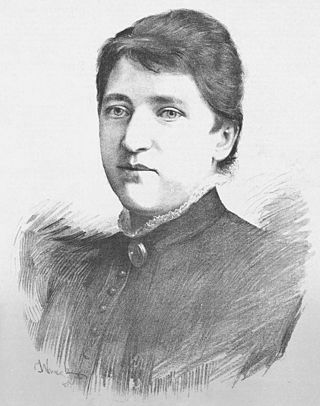
Betty Fibichová was a Czechoslovak opera singer and the wife of composer Zdeněk Fibich. The greatest Czech operatic contralto of her day, she enjoyed close artistic partnerships with both Antonín Dvořák and Bedřich Smetana in addition to collaborating frequently with her husband.
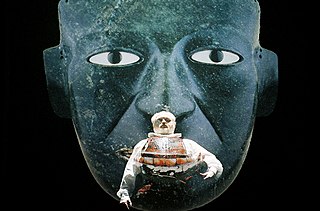
Ivan Kusnjer is a Czech baritone opera singer. His discography includes recordings of many of the main baritone roles of Czech opera and song.
The Death of Vlasta is a 1903 opera by Otakar Ostrčil. The story concerns Vlasta, leader of warriors in The Maidens' War legend and is connected to the subject matter of Smetana's Libuše and Fibich's Šárka.



















